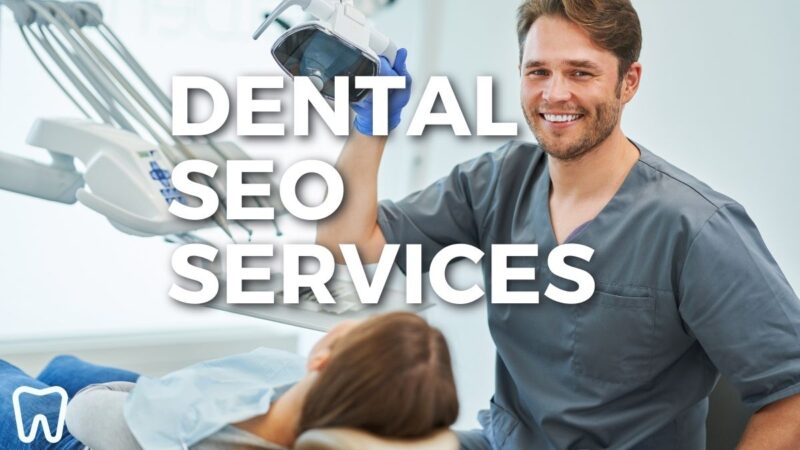Healthcare SEO Strategy: Boosting Online Visibility for Medical Practices

In today’s digital age, having a robust online presence is crucial for healthcare providers. With the increasing number of people using search engines to find medical information and services, it has become essential for healthcare organizations to develop effective SEO strategies. This article will delve into the importance of SEO in healthcare and provide actionable insights to help medical practices optimize their online visibility.
Table of Contents
- Importance of SEO in Healthcare
- Understanding Healthcare SEO Strategy
- Building Backlinks for Healthcare SEO
- Mobile Optimization for Healthcare Websites
- Tracking and Analytics for Healthcare SEO
- User Experience and Website Design
- Implementing Schema Markup for Healthcare
- Optimizing for Voice Search in Healthcare
- Reputation Management in Healthcare SEO
- Social Media Integration for Healthcare SEO
- Managing Online Reviews and Ratings
- Measuring the Success of Healthcare SEO
- FAQs (Frequently Asked Questions)
- Q1: How long does it take to see results from healthcare SEO efforts?
- Q2: Is it necessary for small medical practices to invest in SEO?
- Q3: Can healthcare SEO help in attracting more patients from specific geographic locations?
- Q4: Is it possible to handle healthcare SEO in-house or should we hire professionals?
- Q5: What are the key elements of an effective content marketing strategy for healthcare SEO?
- Conclusion
Importance of SEO in Healthcare
In the competitive landscape of the healthcare industry, SEO plays a vital role in attracting potential patients and establishing credibility. A well-executed SEO strategy can enhance a medical practice’s visibility, drive organic traffic to its website, and ultimately increase patient appointments and conversions. Now, let’s explore the key components of a successful healthcare SEO strategy.
Understanding Healthcare SEO Strategy
Keyword Research and Analysis
The foundation of any SEO strategy lies in thorough keyword research. Identify the most relevant and high-volume keywords that potential patients are likely to search for. Tools like Google Keyword Planner and SEMrush can assist in discovering valuable keywords specific to the healthcare domain. Incorporate these keywords strategically throughout your website content, meta tags, headings, and URLs.
On-Page Optimization
Optimizing on-page elements is crucial for search engine visibility. Focus on creating unique, informative, and engaging content for each page of your website. Ensure proper keyword placement in page titles, meta descriptions, headings (H1, H2, H3), and alt tags for images. Implement structured data markup to provide search engines with additional context about your healthcare practice.

Technical SEO
Technical SEO involves optimizing the technical aspects of your website to improve its performance and craw lability. Ensure your site has a fast loading speed, mobile-friendly design, secure HTTPS connection, and easy navigation. Conduct regular site audits to identify and fix any technical issues that may hinder your SEO efforts.
Content Creation and Optimization
Developing high-quality content that resonates with your target audience is paramount for healthcare SEO. Create informative blog posts, articles, and resources that address common patient queries and concerns. Optimize your content with relevant keywords, headings, and internal/external links.
This not only boosts your search engine rankings but also establishes your authority in the healthcare field.
Local SEO for Healthcare
For medical practices targeting a specific geographic location, local SEO is crucial. Claim and optimize your Google My Business listing with accurate contact information, opening hours, and patient reviews. Ensure consistency of your NAP (Name, Address, Phone) across all online directories.
Encourage satisfied patients to leave positive reviews, as they can significantly impact your local search rankings.
Building Backlinks for Healthcare SEO
Backlinks from reputable websites are a powerful signal of credibility and authority in the eyes of search engines. Acquiring high-quality backlinks should be a part of your healthcare SEO strategy. Reach out to authoritative healthcare websites, medical associations, and local directories to request backlinks.
Create valuable and shareable content that other websites would naturally want to link to. Guest posting on relevant industry blogs can also help in building backlinks and expanding your reach.

Mobile Optimization for Healthcare Websites
In an era where mobile devices dominate internet usage, optimizing your healthcare website for mobile is no longer optional—it’s imperative. Ensure that your website is responsive and mobile-friendly, providing a seamless user experience across all devices.
Optimize page loading speed, improve readability, and make navigation intuitive for mobile users. Mobile optimization not only enhances user experience but also improves search engine rankings, as mobile-friendliness is a ranking factor.
Tracking and Analytics for Healthcare SEO
To measure the success of your healthcare SEO efforts, it’s crucial to implement tracking and analytics tools. Set up Google Analytics to monitor website traffic, user behavior, and conversion rates. Track important metrics such as organic search traffic, keyword rankings, and engagement metrics. Analyze the data to gain insights into what’s working and what needs improvement in your SEO strategy.
User Experience and Website Design
User experience (UX) plays a significant role in healthcare SEO. A well-designed website that is easy to navigate, visually appealing, and intuitive creates a positive impression on visitors. Ensure that your website loads quickly has a clear and logical site structure, and offers easy access to important information. Optimize your site for easy appointment scheduling, contact forms, and patient inquiries.
A seamless user experience not only improves search engine rankings but also enhances patient satisfaction and conversions.
Implementing Schema Markup for Healthcare
Schema markup is a structured data vocabulary that helps search engines better understand the content and context of your website. Implementing schema markup for healthcare can enhance your search visibility and provide additional information in search engine results.
Use schema markup to highlight important details like clinic locations, medical specialties, operating hours, and patient reviews. This can improve click-through rates and attract more relevant traffic to your website.
Optimizing for Voice Search in Healthcare
With the rise of voice assistants like Siri, Alexa, and Google Assistant, optimizing your healthcare website for voice search is becoming increasingly important. Voice search queries are often conversational and longer, so focus on creating content that answers common healthcare questions in a natural and conversational tone.
Incorporate long-tail keywords and phrases that match voice search queries. Structuring your content with clear headings and concise answers can also improve your chances of appearing in voice search results.
Reputation Management in Healthcare SEO
Maintaining a positive online reputation is crucial for healthcare providers. Patient reviews and ratings can significantly influence a potential patient’s decision-making process. Encourage patients to leave reviews and respond promptly to both positive and negative feedback.
Addressing patient concerns and showcasing your commitment to patient satisfaction can build trust and enhance your online reputation. Monitor online review platforms and engage with patients to show that you value their feedback and care about their experiences.
Social Media Integration for Healthcare SEO
Integrating social media into your healthcare SEO strategy can amplify your online presence and engage with your target audience. Create and maintain active profiles on relevant social media platforms such as Facebook, Twitter, and LinkedIn.
Share informative and engaging content, promote your blog articles, and interact with your followers. Social media shares and engagements can indirectly impact your search engine rankings by increasing brand visibility and driving traffic to your website.

Managing Online Reviews and Ratings
Online reviews and ratings have a significant impact on a healthcare provider’s reputation and search engine visibility. Encourage satisfied patients to leave positive reviews on platforms like Google My Business, Yelp, and Healthgrades. Respond to both positive and negative reviews in a timely and professional manner.
Addressing negative reviews with empathy and a willingness to resolve issues demonstrates your commitment to patient satisfaction. Implement a review management system to monitor and respond to reviews across multiple platforms effectively. By actively managing online reviews and ratings, you can build trust, attract more patients, and improve your search engine rankings.
Balancing SEO and Patient Privacy
In the healthcare industry, patient privacy is of utmost importance. While implementing SEO strategies, it’s crucial to maintain patient confidentiality and comply with relevant privacy regulations such as HIPAA (Health Insurance Portability and Accountability Act). Ensure that your website and online forms are secure and encrypted.
Avoid using patient-specific information in your SEO efforts, such as including patient names in testimonials or case studies without explicit consent. Balancing SEO and patient privacy ensures that you maintain trust and integrity while optimizing your online presence.
Measuring the Success of Healthcare SEO
Regularly assessing the effectiveness of your healthcare SEO efforts is essential for continuous improvement. Track key performance indicators (KPIs) such as organic traffic growth, keyword rankings, conversion rates, and engagement metrics.
Set specific goals and benchmarks to measure progress over time. Analyze the data from your tracking and analytics tools to identify areas for improvement and make data-driven decisions to refine your SEO strategy.
FAQs (Frequently Asked Questions)
Q1: How long does it take to see results from healthcare SEO efforts?
A: SEO is a long-term strategy, and results may vary depending on various factors such as competition, website authority, and the effectiveness of the implemented strategies. Generally, it takes several months to start seeing noticeable improvements in search engine rankings and organic traffic.
Q2: Is it necessary for small medical practices to invest in SEO?
A: Yes, even small medical practices can benefit from SEO. A well-executed SEO strategy can help them compete with larger practices by increasing online visibility, attracting local patients, and establishing authority in their specific healthcare niche.
Q3: Can healthcare SEO help in attracting more patients from specific geographic locations?
A: Absolutely. Local SEO techniques, such as optimizing Google My Business listings, targeting location-specific keywords, and acquiring backlinks from local directories, can significantly improve a medical practice’s visibility and attract patients from specific geographic areas.
Q4: Is it possible to handle healthcare SEO in-house or should we hire professionals?
A: It is possible to handle healthcare SEO in-house if you have the necessary expertise and resources. However, given the complexity of SEO and the ever-evolving nature of search engine algorithms, many healthcare practices choose to hire SEO professionals or agencies to ensure the best results and save time and effort.
Q5: What are the key elements of an effective content marketing strategy for healthcare SEO?
A: An effective content marketing strategy for healthcare SEO should involve in-depth keyword research, creating valuable and informative content, optimizing content with relevant keywords, using engaging headlines and subheadings, incorporating visuals and multimedia elements, and promoting content through various channels, including social media and email marketing.
Conclusion
In today’s digital landscape, implementing a comprehensive SEO strategy is vital for healthcare providers to enhance online visibility, attract new patients, and establish credibility.
By focusing on keyword research, on-page optimization, technical SEO, content creation, local SEO, backlink building, mobile optimization, tracking and analytics, user experience, schema markup, voice search, reputation management, social media integration, review management, patient privacy, and measuring success, healthcare practices can position themselves for success in the online space.






